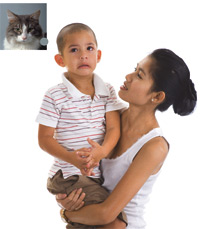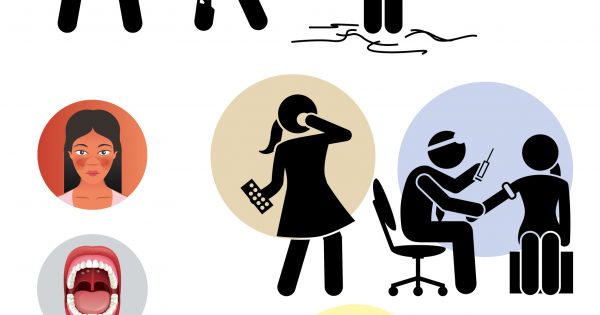Most of the time, the loss of something precious or someone close can occur suddenly. When children are forced to deal with the loss of a person, possession or pet, they will need your warmth, patience, and guidance more than anything in order to deal with the experience.
It is important for you to help them to understand, come to terms with what has happened, and to work through the loss and pain of separation. Your natural instinct might be to protect your children from the pain and sorrow that comes with the loss, but avoiding the issue could do them more harm than good.
Sharing the news
One of the most difficult parts about loss, be it a family member, pet or toy, is breaking the bad news to your children. The best place to do so is in a place where they feel safe and comfortable and not easily distracted.
As with any tough issue, try to estimate how much information your children will need to hear based on their age, maturity level, and life experience. Avoid trying to gloss over the loss with a lie. Be honest with your children and encourage them to ask questions.
Helping your child cope
Dealing with loss, be it the loss of possession or the loss of life, is a process. It is impossible to predict how any child will respond to a particular loss. They will move from a period of acute emotional pain and sadness to a more comfortable emotional state as part of the grief process. Depending on the magnitude of the loss, it may take several days or weeks to several years to complete the process.
Here are a few coping strategies that can assist you in helping your children come to terms with loss.
- Cope with their emotional upheaval. Like anyone dealing with a loss, children usually feel a variety of emotions besides sadness. They may experience denial, loneliness, anger, frustration, or even guilt about something they did or didn’t do that may have caused this loss. Help your children understand that it is natural to feel all of these emotions.
- Give them time. Your children may refuse to believe the loss occurred. Don’t pressure and be patient with them. Allow them to come to terms with the loss on their own time but let them know that you will be there if and when they are ready to open up and talk about it.
- Express your own emotions. Don’t feel compelled to hide your own sadness about the loss. Show your children how you feel about the loss and talk about it openly. This will set an example to your children to show them that it’s OK to feel sad when they lose something they cherish, to talk about their feelings, and to cry when they feel sad. It is also comforting for children to know that they are not alone in feeling sad. You can even share with them stories of your own loss as a child, and how you felt.
- Engage them in activities. If a significant loss has occurred such as the death of a loved one, children can feel angry and depressed. These are common responses to such a loss. Children may have trouble sleeping, lose interest in eating and even playing. Try to engage them in other activities. However, if this persists for too long, seek professional help. A doctor, school guidance counsellor, or mental health organization can provide assistance and recommendations. Also look for books, websites, support groups, and other resources that offer help in managing grief and the pain of separation.
As your child learns how to deal with loss, they will need space, understanding, and patience to come to terms with the loss in their own way. Remember that learning how to deal with loss is like coping with any other physical, mental, and emotional task – it is a process.
You cannot always shield your child from sadness and loss, but helping them to cope with it builds emotional resources that they can rely on throughout life.







Comments